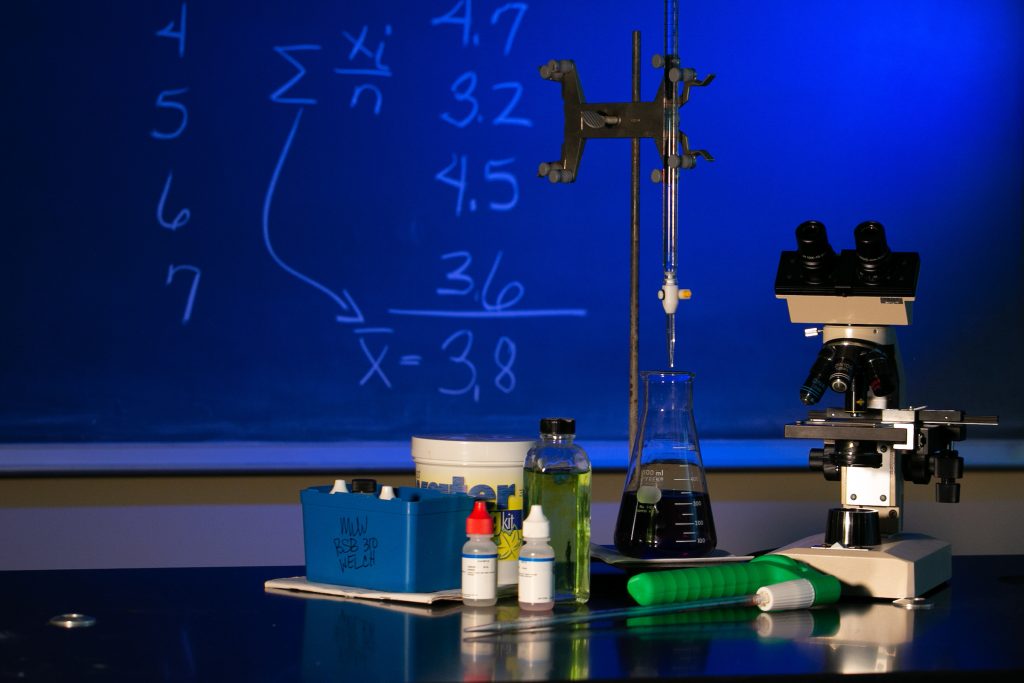Science camp invites youth to The W
Several professors in Mississippi University for Women’s Department of Sciences and Mathematics have been awarded a NASA Inspires Futures for Tomorrow’s Youth (NIFTY) grant to hold The W Science Camp from 8 a.m. to noon July 10-14 at Plymouth Bluff Environmental Center.

The camp will be for local 9- to 14-year-olds, but students outside of that age range also may attend. Twin Cities Public Television, Inc., a nonprofit based in Saint Paul, Minnesota, the National Girls Collaborative Project, the Space Science Institute and the NASA Langley Research Center have provided funding for the event.
The program will focus on science and mathematics in the context of space science, will cover several fields of study and will include a visit by a NASA professional.
“This will be an opportunity that the students and faculty will remember for a lifetime,” said Dr. Bonnie Oppenheimer, professor of mathematics and chair of the Department of Sciences and Mathematics. “Our organization is also excited to invite a NASA STEM Role Model. This will be a great experience for our participants. It is not every day students have an opportunity to engage with NASA in such a close intimate manner, to ask questions and to learn about what life is like as a NASA scientist.”
Dr. Davida Crossley, an assistant professor of microbiology, will lead an activity that will investigate how life exists in water and soil, which would be analogous to how future scientists could find life on another planet. Students will extract DNA from fruit and collect soil samples from around Plymouth Bluff. Water will be percolated through their soil samples and plated on petri dishes to investigate what bacteria and fungi are present.
Oppenheimer will lead a discussion about why we count in base 10 and learning how to count if we met aliens with a different number of fingers that use a different base system.
Dr. Travis Hagey, an assistant professor of biology, will lead activities about the physics and engineering of space travel. One day will emphasize energy storage and kinetic energy and have students construct and race “rubber band cars.” The second physics day will highlight applied algebra to estimate rocket trajectories. Students will evaluate their mathematical calculations using toy “stomp rockets” in which students will drop weights of known mass onto air bladders to accelerate foam rockets into the air and use mathematical equations to estimate flight distances. Students also will investigate deceleration and material properties by designing protective enclosures from cardboard, foam and pipe cleaners to hold a raw chicken egg. These enclosures will be dropped from different heights to evaluate how well their designs protect their fragile cargo.
As part of the planetary science and geology day, students will work with Michael Dodson, an instructor if biology, to make fossil impressions using plaster of Paris. Students will be able to observe locally collected marine fossils and to collect some of their own from Plymouth Bluff’s fossil beds that contain a rich supply of marine bivalve fossils.
The program will incorporate PBS Kids SciGirls videos, which feature real girls putting science and engineering to work to answer real-life questions and to make discoveries about the world around them. The videos show STEM role models discussing their jobs and will make it clear that all students may consider any of these careers. Images from the James Webb Space Telescope should be a daily experience for the participants.
To register, please visit www.muw.edu/sciencecamp.